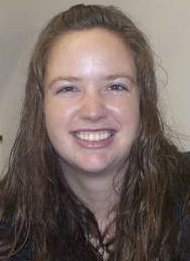I always seem to think of things to say after I’m asked my opinion… I simply need a little time to organize what I want to say.
The other day, I attended an event, it was a blanket exercise – the article can be found in this edition of the paper – in essence it had students sitting on a blanket marking pre-colonialism. Then, as the facilitator explained the history of the European and Indigenous peoples the blankets slowly got smaller, disappeared altogether, and people were asked to leave the shrinking blankets representing death or lost connection to their people.
At the end, they went around in a circle all saying what they thought about the exercise and the facilitator asked if I would like to say anything, so I replied, “I actually studied history, so I knew the ‘facts,’ but this was presented in a very striking way and was very well done.”
As I was driving home, this stuck with me – in fact the entire way home I was thinking and immediately went to my computer to get my thoughts down for this column. As I was driving/thinking, I had a pit in my stomach and my heart hurt; this is typically the feeling I’m left with when I see the emotional reality of what Canada did to an entire people and that legacy. And I sit there wondering, “How can this be made right?” It’s not fair that an entire people is hurting, that they’re saddled with so many complications and challenges based solely on this country’s history.
I always feel at odds with this, however, as my inner dialogue runs and thoughts continually drift to my grandparents who emigrated from the Netherlands to Canada. When they were young, World War II was raging around them, and it was Canadian troops that liberated Holland. So, to my grandparents – who lived in a country under foreign Nazi rule – and to many people there, Canada is the “good guy.” Canada gave them their country and culture back – Canada even allowed their royalty to live in Ottawa since June 1940 while the Nazis occupied the Netherlands and when Princess Margriet was born in 1943, the Canadian government temporarily declared the maternity ward of Ottawa Civic Hospital to be extraterritorial, thus ensuring the newborn would be born – solely – a Dutch citizen.
Overseas they left a legacy of appreciation and positive sentiments; but, Canada was taking many lives at home. Canada is essentially a country built on taking lives and leaving a legacy of pain amongst an entire people.
Canada, as with any political entity, has its good and bad, and I think acknowledging both aspects can bring us all closer together. We look back in history and can see how we came to be where we are, but we can’t go back in time to change anything, we can only find a way to all move forward together.
Canada is many things to many people and as many of us are set to celebrate Canada’s 150th, I think we also have to acknowledge that not everything in that 150 years was good, but that we’re looking forward – united – in finding a way to make things better. To right any wrongs and to celebrate what we are proud of as a country because our history makes us all Canadians and we must forge forward on a new path together.
Celebrations are always a time to reflect back, but it’s also a time to look to the future and I think we all need to ask ourselves what we can do to move forward as one. We need to celebrate and appreciate our diversity as a country and heal together.



